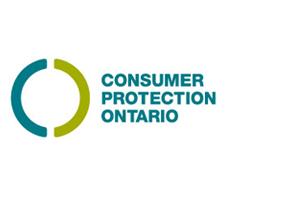
Information on how to check your credit report for free, correct any mistakes in it and tips on avoiding identity theft or credit repair scams.

A credit report includes:
A credit report does not include:
Consumer reporting agencies create and maintain credit reports. They collect information from various sources, like banks, credit card companies, mortgage companies and other creditors.
In Ontario, there are two major consumer reporting agencies:
In Ontario, the Consumer Reporting Act sets out:
The Consumer Reporting Act recognizes that businesses, landlords and employers need to have correct information. At the same time it ensures:
A person who is found guilty of knowingly providing a consumer reporting agency with false or misleading information could be fined up to $25,000 or imprisoned for up to 1 year, or both. A corporation that is found guilty of the same offence could be fined up to $100,000.
By law, consumer reporting agencies must get your consent before they can share a copy of your report. They can provide a copy of your credit report to:
If a person denies you credit or increases a charge or fee — and if you request it within 60 days — you must be told:
We recommend that you check your credit report at least once a year. Nothing in your file should be a surprise to you.
To get a free copy of your report, contact:
You may want to contact both agencies because they might have different information on file. Your credit history and personal information must be easy to read.
If your credit report includes any information that is wrong or is not familiar to you, it could be a sign that an identity thief is using your personal information.
To correct information in your credit report that is inaccurate or incomplete, you:
Once the error is corrected, the consumer reporting agency must notify anyone who received a copy of the report that had the error in the past 60 days.
We will ask the consumer reporting agency to provide more details about your complaint, and may order corrections on your file. We must have your written permission before your personal file can be accessed. If you require accommodations, please contact us.
If you want to be cautious, you can also pay a fee and get an alert to be included in your credit file. This alert warns a person to verify the identity of anyone who claims to be you.
A consumer reporting agency must put an alert in your file if you ask for one.
Consumer reporting agencies may charge a maximum fee of $5.00 to include this alert in your file. They must give this alert to anyone who receives information from your file.
When a person receives this alert, he or she must take reasonable steps to verify that he or she is actually dealing with you before proceeding with certain types of transactions, like:
An example of a reasonable step that a person might take to verify that he or she is actually dealing with you is contacting you at the telephone number that you provided to the consumer reporting agency.
Be wary of companies promising to “fix” bad credit.
Some credit repair companies claim that they can get negative information ( e.g. , a bankruptcy) taken away from your credit report if you pay them a fee. Fees are usually large and paid in advance of any service, which is illegal.
The only way to improve a poor credit rating is to pay your debts and allow time to pass to show that your payment habits have improved.
Having a good credit record may make it easier for you to get a loan, a credit card or rent an apartment.
Here are some tips for maintaining good credit: